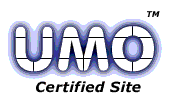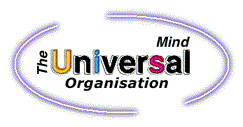 |
 |
|
|
|
Preface - The Universal Mind & I We live in a society where we are becoming increasingly alienated from one another. Nevertheless, despite the increasing diversity of life styles and far reaching interest groups we do share one very strong common bond with our neighbours, a bond that has existed since mankind first became self-consciousness. What is this bond you ask? It is simple - despite our advances in technological innovation that has propelled society into unparalleled levels of sophistication, a level of sophistication that has allowed us (at least in the western world) to effectively overcome the threats of famine, disease and poverty, we still yearn for the answers to a few basic questions. Despite our educational background, our income, and our location of residence, there are a few basic questions that every intelligent being yearns for the answers to. Who hasn't asked the questions: "why do I exist?" or "what purpose does everything serve?" or "what is the meaning of life?" This is one very special bond that will never cease to be, a bond that will forever serve as a unifying force for mankind. History is littered with individuals who have sought the answers to these same burning questions. The most famous of which are those that managed to found movements in their name. In the west we have Christianity, in the East there is Buddhism, Hinduism, Islamism and Judaism to name but a few. Each of these philosophies shares the proclamation of being the findings of truth and some are even said to be the revelation of a God, and yet it is not uncommon for one philosophy to conflict with another's teachings. Clearly if two or more proclamations of truth conflict with one another, both or either must be lacking in accuracy. The dilemma of who should be believed is one that is frequently encountered by anyone turning to spiritual literature seeking the deep underlining explanation concerning existence that science fails to deliver. Typically, when faced with the dilemma of what to believe in our everyday life, we seek clarification through logic and rational interrogation; unfortunately, many spiritual philosophies do not bear well under such scrutiny. Regrettably, most require a form of blind faith. In the West the Bible was introduced into mainstream society many centuries ago with the proclamation that the contents were the revelation of God itself. This is a common claim made by many metaphysical philosophies. On the surface the teachings of the Bible seems to provide an explanation as to why everything exists through the claim that an omnipotent being created and maintains our universe. Through this one simple explanation the mystery of life was explained. That was until someone asked the obvious question: "if God created the universe what or who created God?" At which point confusion once again rained supreme. Sadly, most metaphysical philosophies when probed with deep penetrating questions fail to deliver the full explanation they initially claim to offer. In our modern day society where the education levels are ever increasing there are fewer and fewer people willing to accept something without evidence. Never before have the great religious philosophies of the world come under such scrutiny. Only a few hundred years ago you would have been mocked and ridiculed for not belonging to a religious order, these days the religious enthusiast is becoming somewhat of a rarity. The battle between the intellect and religion in the western world can adequately be depicted with the story of Galileo. Galileo was a famous astronomer who was imprisoned by the church because he had observed that the Earth rotated around the Sun. Why was this considered such a scandalous act? Because the Bible (old testament) proclaimed that the Sun rotated around the Earth, and if this was found to be incorrect then it would not be long before others began questioning the validity of the other teachings in the Bible. The problem for the Church was simply this: if the Bible was the revelations of God then it would mean that the supreme omniscient creator was either incorrect or the writer had misinterpreted what was said. Either way the Church could no longer proclaim that the Bible was a book of absolute truth. These days the Christian legislative body are no longer able to repress freedom of thought and as such they are facing a barrage of questions they simply cannot answer. As the other great religions of the world come under similar scrutiny it has left those still seeking the answer to those age-old burning question bemused and confused. Never before have we had such freedom of belief, but never before has there been such confusion as to what is true. It seems absolute truth has been replaced with absolute doubt. No religion should be allowed to force a mind to adopt its teachings and they most certainly should never be allowed to stand in the way of knowledge, truth and reason. People buy into the findings of science not because they are forced to do so but because they can see the logic behind what is being said. Spiritual teachings, if they are to progress, need to adopt a similar approach. The problem however, is that many old religious philosophies, and even some of the newer ones, simply asks the reader to buy into its teachings with absolutely no in-depth reasoning. As society increases in intelligence they have learned to appreciate that there is always a reasonable explanation behind everything and many simply refuse to accept a teaching unless it can thoroughly explain itself. Many spiritual bodies when faced with serious interrogation attempt to cover up their failings by suggesting that there is a limit on what we can know and that God works in mysterious ways. This response is no longer considered acceptable, and rightly so. If a teaching cannot justify itself rationally it should never be taught in the first place and it certainly should never try and pass itself off as truth. Several years ago I became totally disillusioned with spiritual literature and its apparent contradictions. I was tired with being told that "God works in mysterious ways" when I probed beyond the surface of a teaching. I was tired of being told that there were "things of this world we can know not of". Yet at the same time, I could not accept the scientific proposal that everything was the result of some freak accident. One night after experiencing a sense of utter disillusionment I retired to my bedroom. I stood in the dark at the foot of my bed and with every fibre of my being I broadcasted a message for help. To my utter surprise a bright white light appeared in the top left hand corner of my bedroom. Initially it started at the size of a Golf ball and then gradually increased in dimension until it was about half a meter in diameter, at which point it transformed into a florescent purple and then disappeared from view. Unfortunately, it did not provide a list of answers complete with appendages, nor did it whisk me off to some mysterious place to teach me the intricacies of the absolute reality; yet there was something within me telling me that the solution was right before my very eyes. For the first time in a very long time I was fulfilled with an overwhelming sense of optimism. Something told me that there were no mysteries, only answers to questions that have been overlooked. After all, why should there be a limit on what can be known? Has 2 + 2 not always equalled 4? Has not the colour blue always been blue? No, something within me told me that there is an answer to every question and these answers could be found right here, right now. All I needed to do was keep an open mind and search earnestly for the answers. The book you are about to read is the result of several years of sole searching by myself. My intention was to find a systematic explanation of existence and life that had no contradictions, and if I may leave modesty to one side for a brief movement, I am willing to state quite confidently that I believe I have done just that. Someone once asked me "who would be interested in reading this book?" The only answer I could give at the time was that it is for anyone who has asked the questions: "Why does everything exist?" and "What purpose do I serve in the totality of things?" It is for anyone with a strong desire to uncover that greater reality that we intuitively know exists, but which is hard to rationalise and therefore understand. Attempting to answer these questions was the most challenging work I have ever undertaken and the hardest challenge in writing this book was in attempting to discuss a subject of a deep philosophical nature whilst trying to make it as easy to read as possible. I feel I have done this to the best of my ability, however, given the nature of the subject there are always going to be some who will find certain aspects difficult to absorb. The level at which the reader encounters difficulty will undoubtedly be connected to their level of receptivity and current understanding. If you begin this book with an open mind and a willingness to judge it on merit alone then you will receive far more than someone who enters with a dogmatic half-hearted approach. This book is certainly not a romantic novel with spiritual overtones. It will not tell you how beautiful you are nor does it talk of Guardian Angels. I have read a plethora of books based on new as well as old age philosophy, and although I have found many of them of interest, they have done little to answer those burning questions within. This book is designed for the serious seeker of enlightenment who desires a rational discussion regarding those questions already outlined. This book could in many respects be viewed as my personal diary of discovery. The book is divided into several 'dialogues' each of which focuses on areas I personally sought further clarification. Each dialogue represents an inner debate as I earnestly search for truth and I hope that by presenting this debate to you, the reader, you can share in my voyage of discovery. A confused, disillusioned being started it and I like to think a wiser more enlightened one finished it. At the end of my voyage what unfolded was a manuscript of such density in knowledge and wisdom, that not only did I surprise myself, but I was also left in no doubt that this could be of a fundamental benefit and interest to anyone else seeking a deep and systematic explanation of existence. What I eventually came to realise was that spirituality should not entail the worshipping of a God or deity but it should offer a way of life based on truth and understanding. It should enable the establishment of harmony where there is chaos, clarity where there is confusion, and most importantly of all, it should afford its student the experience of that inner peace and tranquillity they have so long craved. With the belief that this book affords such an opportunity, I turn it over to you in the hope you will receive as much pleasure and benefit from reading it, as I did from writing it.
|
|